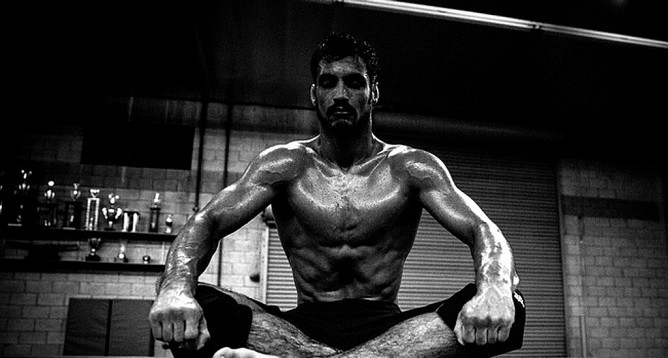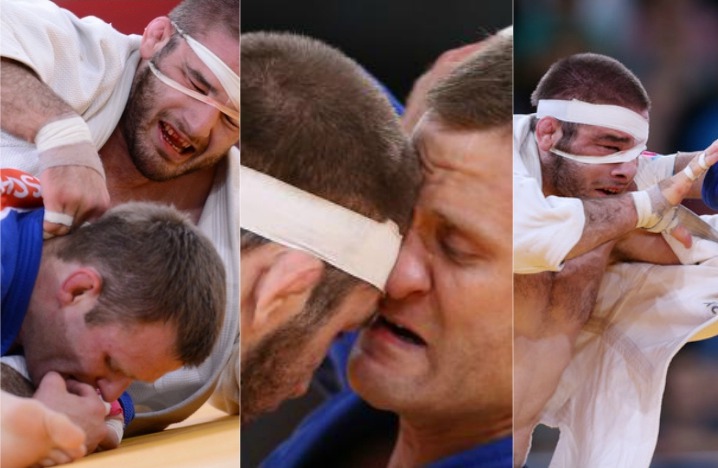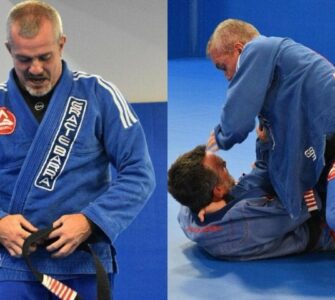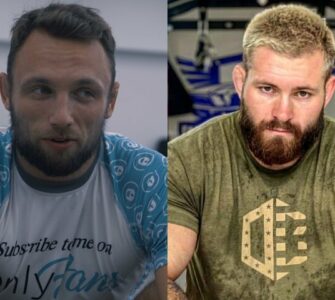In sport settings the identification and development of mentally tough athletes has become a major focus for many teams and organizations around the world. While the instruments used to determine mental toughness in sports are still faulty, there are key aspects most researchers agree on.
Perceptions of mental toughness obtained from the available research suggest that it is multifaceted; made up of multiple key components. Core group of key components that doesn’t vary significantly by sport is consisted of: self-belief, context intelligence, resilience, emotional awareness and regulation, intentional control, optimistic thinking, handling challenge and success mentality. These factor both into positive (e.g. winning streak) and negative (e.g. injury) life experiences (Gucciardi et al., 2009).
What exactly is mental toughness?
The accepted definition seems to claim being mentally tough means having the psychological edge that enables you to: cope better than your opponents with the many demands and to be more consistent and better than your opponents in remaining determined, focused, confident and in control under pressure.
Another conceptualization of mental toughness is the 4Cs model. For authors of this theory mental toughness is reflected in individuals that tend to be sociable and outgoing: as they are able to remain calm and relaxed, they are competitive in many situations and have lower anxiety levels than others as well as high sense of self-belief and an unshakeable faith that they can control their own destiny. These outstanding people should also be relatively unaffected by competition or adversity. (Clough et al., 2002)
In terms of Brazilian jiu-jitsu this is spectacularly relevant. Earlier last year I wrote an article called “What does sticking with jiu-jitsu say about you”. It’s largely focused on parameters of successful competitive bjj players. Over 40% of these bjj players were highly extraverted aka sociable and outgoing. Similarly over 40% had the lowest levels of anxiety aka they were relaxed in competitive situations. Further their levels of psychoticism were low for over 60% so it’s not a stretch to assume they had a high sense of self-belief as well. When we consider these results it’s hardly jumping to conclusions to assume these individuals would have exceptional mental toughness.
Psychological Performance Inventory (PPI; Loehr, 1986) measures seven most essential ingredients of mental toughness:
- self confidence
- attention control
- negative energy
- motivation
- attitude control
- positive energy
- visual and imagery control
Self confidence
Believing in your abilities is one of the most important factors for leading a successful life on the mats and off them. Unwavering faith in one’s own capabilities can be the pendulum that decides the outcome of many high stress situations. It’s the difference between the positive thinker and the person who starts questioning whether they will remember what to do once they enter the relevant situation. While self-belief isn’t unalterable, it’s not an easy feat.
“I’m not the kind of person who could…”
Before I started Brazilian jiu-jitsu I was considering it as well as a couple of other hobbies. They all sounded very ambitious and two of my close friends were laughing at me about it. I didn’t take it personally, I was confident that with enough determination and some money it could work. And it’s worked out spectacularly. My life is richer for the risks I took. I am the kind of person who would, and I will.
Self-confidence largely comes from a life-long trial and error process. Trying is a very important aspect of it. Most people who have blatant self-confidence issues have trouble trying anything new, dealing with new situations and new people. Gaining self-confidence comes with realizing failing at something is not the final result or the end of the world, it’s just a side step on a road to your goal. I still see trying and failing at something as one step closer to success, my coach sometimes disagrees as I’m known to repeat stupid mistakes the exact same way.
Attention control
When experts say attention control they are thinking about the ability to sustain an optimal level of focus while blocking out irrelevant thoughts and attending to task-relevant information. Being a scatter brain will be a serious obstacle in your life journey. In Brazilian jiu-jitsu it’s much harder to not be “in the moment”. This is not some baller sport where you need to wait for someone to tag you in.
Theoretically attention control training is more than a technique. This is a complex process that involves assessment of attentional strengths and weaknesses, of the attentional demands, of characteristics that are likely to affect an individual and dictate his behavior under pressure, identification of situation specific problem areas and error patterns and development of an intervention program.
Pay attention, there’s a way to amplify your strengths or expose the opponents weaknesses. Count in specificity of the situation (e.g. https://youtu.be/yh97aPIlYKE?t=554 ). Think about situations that result in your error and dissect them. Finally, put in preventative measures.
Negative energy
How do you perceive threatening or frustrating problems? Allowing yourself to become angry, frustrated, nervous or afraid can be detrimental. I say allowing because these are all things under your control. Practice control; don’t let your feelings get away from you. I would suggest competing a lot, as a way to train this aspect of mental toughness. Feelings of anxiety and nervousness are something that happens to everyone but it doesn’t overwhelm or control everyone. Judge how fast you’d like to deal with this and then propose a plan of action and follow through. If you follow through you will gain some self-confidence as well as the ability to quiet the nervous voices in your mind.
This is another instance where you might find breathing techniques useful. Ujjayi breathing is a breath technique used by many Yoga practitioners as well as Rickson Gracie. It’s sometimes called “The ocean breath”. This type of diaphragmatic breath first fills the lower belly, rises to the lower rib cage and finally moves into the upper chest and throat. The length and speed of breath are controlled by the diaphragm and in return these exercises strengthen it. Ujjayi breathing touches upon midsection transvers abdominals. Muscles unique stemming from the fact they aren’t attached to bones. They lie under the normal abs and act similarly to a weight belt. Having strong transverse abdominals is a good indication of a healthy stable lower back.
The diaphragm goes largely unnoticed even though we use it every single minute of the day. When the diaphgragm contracts, in conjunction with the intercoastal muscles, it lowers the pressure in the thoracic cavity. Anybody who has ever tried bjj can tell you – the first thing you pull is the intercoastal muscle. These often ignored muscles are incredibly important. The diaphragm stabilizes the core and it’s a crucial muscle for remaining in control and not getting too winded. It’s no wonder this kind of breathing is a trademark of a man nicknamed Ice cream for his cool head approach.

Kron Gracie
https://www.instagram.com/p/o_rxXtQW8_/?taken-by=riokid
Motivation
Maintaining high levels of motivation is crucial for execution any kind of long term goal. The root of mental toughness lies in motivation. Mentally tough individuals typically exhibit intrinsic motivation. People who are intrinsically motivated are willing to push themselves to the brink for the love of the sport or whatever they are doing. This is also a reason why you shouldn’t reward your kid for reading or for nice grades. Let the activity be the reward for itself. Actual rewards or extrinsic (as they are referred to in the world of psychology) actually lower intrinsic motivation and therefor have a detrimental effect to the activity in question.
Some individuals perform best under pressure and as such thrive on competing. They even revel in the chance to compare themselves with others. This is what’s called achievement motivation. Motivation to avoid failure is another significant motivator. These individuals only get going in a response to challenges that threaten their egos. If you’re looking to become more motivated it’s important to realize which of these fuels you (because it’s typically one or the other). Most instructors report that players who are motivated by success don’t need as much instruction or cajoling when they are on the losing side – they jump back in looking to make a comeback.
Attitude control
Having attitude approach is a key characteristic of elite performers. Central importance for development of mental toughness relies on the ability to problem-solve and take personal responsibility. Competitors should be exposed gradually to demanding situation so they could learn in a challenging yet supportive environment. An athlete must identify with the steps taken to reach a higher degree of mental toughness and to remain there.
Positive energy
Having positive energy does not equal acting like Santa on Prozac in Disneyland petting kittens. An individual with positive energy is mainly able to analyze his performance and learn to adapt to whatever caused the errors and not be hung up on a previous failure. It is the ability to use one’s knowledge for future performances. It is equally important knowing when to celebrate success and then stop and focus on the next challenge.
It’s helpful to know high task/moderate ego goal profile has a much greater mental toughness in positive energy. Results suggest the possibility that athletes with a high task, moderate ego goal profile probably benefit during adversities in competition due to good control over themselves and higher mental toughness.
Visual and imagery control
It’s also very important to be able to control the flow of mental pictures and images in positive and constructive directions. Many have said that the biggest challenge is defeating your opponents mentally. To this end, athletes’ ability to focus attention, to control performance imagery and a total commitment to the pursuit of excellence have been identified as critical psychological attributes. Success in any sport starts in the mind.
Can your mind make you physically stronger?
Sometime in 2007 a group of American scientists wrote a research called “Mind over matter”. During this research they assigned 30 male university athletes (in various sports) to groups that received mental training, physical training and control group. Their findings were a bit surprising. Namely, they found physical strength was increased by 24% through mental practice and 28% through actual physical practice. Both trainings produced similar decreases in heart rate and both yielded reduction in systolic blood pressure. This is not the first time mental practice demonstrated it’s worth (Ranganathan et al, 2004). Schakell and Standing’s research might be more relevant for us as they focused on hip strength.
So what exactly was this mental training that produced results? Over two weeks each participant (in the mental training group) received 10 training sessions of 15 minutes each. During each training session the participant was instructed to mentally envision himself using the hip flexor machine for four sets of eight repetitions. Every subsequent session increased imagined lifted weight by five pounds. This is what’s been referred to as visualization-guided brain activation training.
While there’s no indication that mental practice alone can be effective to induce strength gains or to optimize training effects it’s looking quite likely that some cognitive strategies increase strength and muscular resistance by enhancement of the performance during dynamic tasks.
And this is something you can definitely apply to your Brazilian jiu-jitsu journey. We often hear about fighters visualizing their fights beforehand. Truth of the matter is, these particular visualizations might not have great strength gains but they highly impact strategy, anxiety and heart rate during competition. If you have enough self-belief and determination to apply your mind, all of these techniques can provide the psychological edge that will make you victorious.
Written by Iva Djokovic.

















